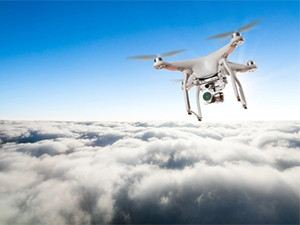
The South African Civil Aviation Authority (SACAA) says over the last year, the number of registered remotely-piloted aircraft systems (RPAS), commonly known as drones, has more than doubled.
Over the 12-month period, registered drones went from 216 in January 2016, to 465 in January 2017. The number of pilot licences issued also increased from 33 to 368 in the same period.
SACAA says this number is "drastic", but not unexpected, and urges all drone owners, both professional and hobbyists, to abide by the applicable laws.
Simon Segwabe, aviation safety operations exec at SACAA, says: "The substantial increase in the number of registered RPAS and associated licences in the country is not a surprise at all. In fact, the increase has always been envisaged, as the rapid advancement of this technology and its potential use in commercial and other activities make RPAS appealing to many prospective operators.
"However, the low cost and easy availability of RPAS mean anyone can acquire and utilise these aircraft, and therein lies the concern, as some owners may use these aircraft in a manner that contravenes civil aviation regulations and other laws."
Drones are categorised as aircraft worldwide and are therefore integrated into the existing manned aviation sector and civil airspace. Until July 2015, there were no laws in place in SA, which meant the flying of any unmanned aircraft was illegal. New stringent regulations were set up in response to the growing demand to regulate the sector so SA could take full advantage of the emerging technology.
Segwabe says SACAA's main concern is the increasing number of unregistered and unapproved drone operations that are taking place. He says the authority estimates for every registered and licensed drone taking to the skies, there are two or three more doing so illegally.
"The reality is that in most instances, RPAS are made with consumer-grade electronics, with uncertified and often untraceable hardware and software. The failure rates of some of these aircraft are indeterminable, as there are currently no civil certification standards available anywhere in the world.
"Although these aircraft are much smaller and lighter than existing manned aircraft, their presence in the skies still present a significant risk to other airspace users, persons and property on the ground. A collision of an RPAS and a helicopter or a jet full of passengers could lead to a catastrophic disaster," says Segwabe.
He says there have been reports of drones flying over private property, and following people around, which is illegal under the regulations passed in 2015 and is an invasion of privacy.
Segwabe says there are hefty fines for failure to abide by the rules, including a 10-year prison sentence or a fine of R50 000, or both.
Share